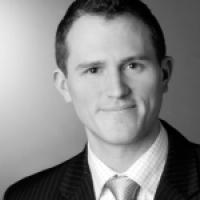Climate Change Negotiations and the German Energiewende – Warsaw-Berlin-Hamburg – ELEEP Study Tour
- Event
- Date
-
-
- Location
- Warsaw, Poland / Berlin and Hamburg, Germany
The ELEEP Network's third study tour of 2013 continued its series of events promoting a transatlantic dialogue on climate and energy funded by the European Union (EU) and the Robert Bosch Stiftung. (ELEEP stands for the Emerging Leaders in Environmental and Energy Policy Network).
Warsaw - Berlin - Hamburg
Eleven ELEEP members were joined by staff from the Ecologic Institute and the Atlantic Council of the United States (ACUS). The group gathered in Warsaw (Poland) on 10 November 2013. The study tour lasted from 10 to 15 November 2013 with additional stops in Berlin and Hamburg (Germany). As Poland was hosting the UNFCCC climate change negotiations in Warsaw, there was an opportunity to combine in one study tour a look at climate change negotiations and the implementation of ambitious energy policy (Germany's Energiewende).
The UNFCCC negotiation process
As some of the ELEEP members did not work on the climate change negotiations, Matthias Duwe (Head Climate, Ecologic Institute) and Tim Stumhofer (ELEEP member and Senior Program Associate, Greenhouse Gas Management Institute) gave presentations to the group about the history and functioning of the UNFCCC process and discussed with them what they could expect would happen during this round of negotiations. The group spent the next two days at the Polish National Stadium, where the UNFCCC negotiations were taking place. During their time in Warsaw, the group had the opportunity to meet with members of the German and Polish delegations to the negotiations. They also gained perspective on the approach taken by non-governmental organizations through meetings with Germanwatch and the Environmental Defense Fund (EDF). Complementing the tour's focus on renewable energy in Germany, the group met with Andrzej Kassenberg, President of the Institute for Sustainable Development (ISD), to discuss Poland's energy future and the potential for renewable in Poland.
Understanding the German Energiewende
For the final three days of the tour, the ELEEP group traveled first to Berlin and then to Hamburg to gain an understanding of Germany's Energiewende, the challenges to its further implementation, and the myriad ways that the overarching policies are being implemented throughout the country. The group was given an overview of the national policies driving the Energiewende and the policy levers used to encourage the transformation of the energy economy through meetings with Agora Energiewende and the German Energy Agency (dena). The participants also saw the Energiewende "in action" through a series of site visits: from a single house (the Efficiency Plus House in Berlin) to a 100% renewable energy system at the local level (in the village of Feldheim, Brandenburg), to the re-imagination of a part of a city on a sustainable basis (the Hamburg IBA in Wilhelmsburg). The Hamburg Institut organized a series of meetings for the group, where they learned about the ways in which Hamburg is and is becoming a leader in renewable energy. Jan Rispens, Managing Director of the Renewable Energy Hamburg Cluster, talked about the network of businesses working on renewable energy in the city and synergies of having them in one place. Stefan Schurig, Director of Climate and Energy at the World Future Council, spoke of the advantages of citizens controlling their own energy resources and moving toward a 100% renewable energy future. Finally, Christian Maaß and Roland Schaeffer, Founding Director and Partner respectively of the Hamburg Institute, discussed the remunicipalization of the Hamburg electricity and district heating systems, which was recently approved in a referendum and will be carried out by Hamburg Energie.
The ELEEP members will be writing a series of articles about their experiences and the key lessons for policymakers in the US and the EU which will be published in the coming months.



